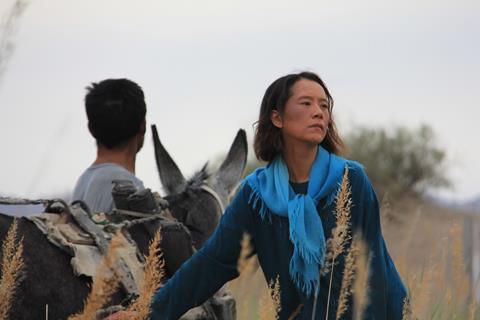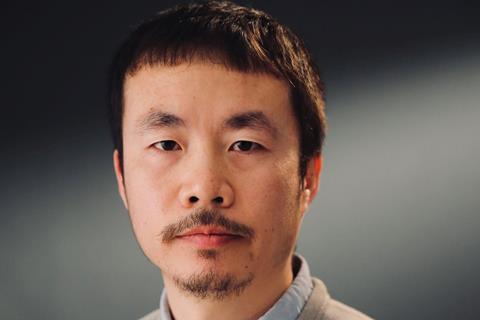
Li Ruijun makes his Berlin Competition debut with Return To Dust — the first time a film from China has screened in the section since the outbreak of the pandemic. The last Chinese title to play Competition was Wang Xiaoshuai’s So Long, My Son in 2019, which scooped the best actor and actress Silver Bears. (Zhang Yimou’s One Second was also due to compete that year, but was withdrawn four days before its world premiere.)
Born a few generations after Wang and Zhang, 39-year-old Li may not have their box-office draw among mainstream audiences in China, but he is well known in the cinephile circuit for acclaimed titles including River Road and Fly With The Crane. His films are often rooted in social realism and performed by non-professional locals, including his own parents and relatives, chronicling the traditional rural life around Gaotai, his hometown in central China’s remote Gansu province.
Li’s last film, 2017’s Walking Past The Future, is considered his most mainstream. The Cannes Un Certain Regard premiere starred popular actress Yang Zishan as a factory worker in industrial Shenzhen.
Return To Dust sees the filmmaker return to his beloved rural landscape. The peasant drama follows two outcasts (Wu Renlin and Hai Qing) who overcome adversity while they — and a donkey — build a farm. The film’s China release is scheduled for February 25.
Li and his team are unable to travel to the Berlinale due to the pandemic; m-appeal handles international sales.

How is the film’s Chinese title Yin Ru Chen Yan a reflection of your creative vision?
The four Chinese characters suggest “hidden in the land of dust and smoke”. On a deeper philosophical level, they also suggest that the vanished time and life is not gone, but perhaps hidden in the dust. What we can’t see doesn’t mean it doesn’t exist. The title is simple yet complicated.
Your hometown Gaotai is a persistent character in your films. What keeps drawing you back?
People from the countryside have boarded the train for the city, but the two protagonists have missed it. They are like two people on a bicycle, chasing after the people on the fast-moving train. China has about 80,000 cinema screens, but rarely do audiences get to see the lives and the people around Gaotai. It’s important for them to be seen and understood when the best of our centuries-old local traditions are slipping away due to rapid urbanisation. My film documents the fast changes there and pays tribute to the land that nourished my life and my soul. It is a main source of inspiration for my films.
The film opens in winter and unfolds over four distinct seasons. Did you film in chronological order?
We shot by following the seasonal changes, the life cycle of the crops and even the migratory bird season. We spent almost six months in pre-production to map out a detailed shooting plan and schedule. I used to tend to my family’s farm when young. With the help of the main actor Wu Renlin, who is my uncle, his son who plays the second nephew, my brother and my father, we were all involved in building the farmhouse and growing the crops until harvest time. We worked like peasants the whole time and dedicated our lives to the land, just like them.
What kind of challenges did you encounter on a shoot that stretched over eight months during the peak of the pandemic?
The shoot was split in five parts. We shot for a total of 85 days from March to October 2020. It was the longest shoot ever for me. The pandemic badly disrupted our production. It’s difficult to book the crew while cashflow was extremely tight. Besides, we need to take care of all the animals and crops to make sure they grow well.
You’re credited as the film’s director, writer, editor and art director. What are the pros and cons of taking multiple roles in the film?
The good thing is we can save a lot on the production budget, as it’s not easy to find investors for my films. Communication is easier and I can create a consistent visual style that suits the film. But the downside is it can be very exhausting for me, and I may have ruled out other possibilities when I’m trapped by my limitations.
























No comments yet